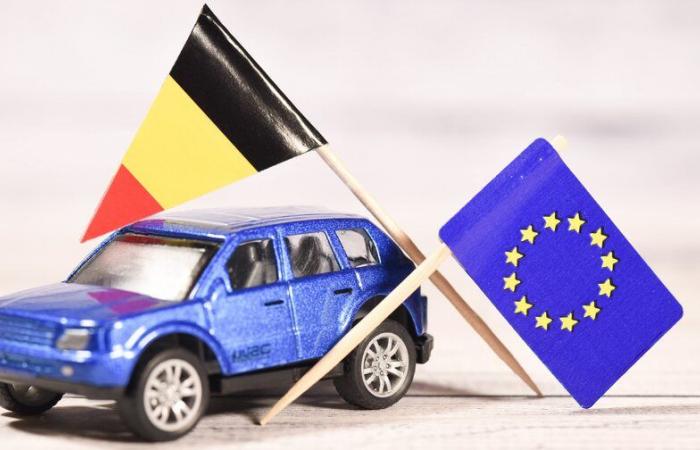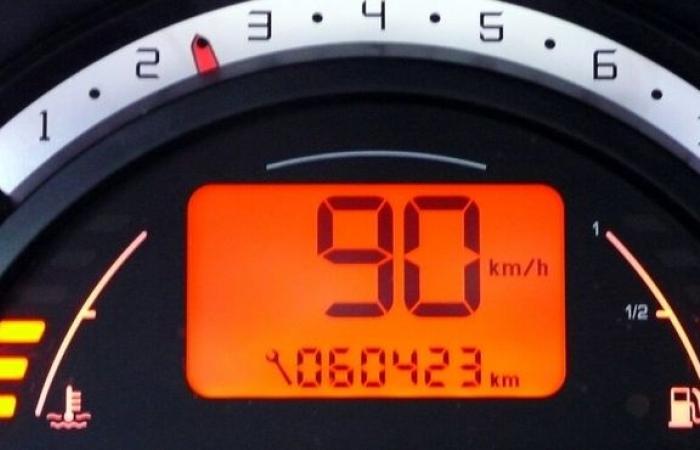The second-hand market picked up color last year with 5.3 million transactions carried out. An increase of 3%, notably due to a significant fall in prices, of around 7.1% on average.
Above all, it is the search for savings that motivates the purchase of a used car. For some, this motivation can push to cross borders and import your car, even if it seems that the gain is no longer as advantageous as before. However, German premiums remain overall cheaper.
The price factor is not the only one, however, the search for a specific model, or to take advantage of a better maintained car is still a purchasing motivation. The temptation to go see if the grass is greener elsewhere persists.
General rules
We must first ask ourselves this question, what is a used car? In application of art 298 sexies of the general tax code, a new vehicle must have more than six months or having traveled more than 6,000 km on the delivery date. This criterion is particularly important in terms of VAT.
Vehicles imported from a Member State of the European Union (new or used) are not subject to customs formalities. If you purchase a used vehicle from an individual in another Member State, the purchase of the vehicle is not subject to VAT in this state. That’s always the case. On the other hand, if you buy the vehicle from a seller subject to VAT, you will have to pay VAT in the seller’s country, the transaction is then not taxable in France.
Note that Germany is the leading exporting country of used vehicles, and by far. The pronounced taste for German brand vehicles, particularly premium, explains its domination. The choice is also wide and our German neighbors generally maintain their cars better. Finally, technical control is stricter than with us, but the significant use of salt on their road network often causes more pronounced corrosion. Inspecting its underside (floor, running gear, etc.) is absolutely necessary.
Belgium is second thanks to its large offer, its geographical proximity and the implementation of the Car-Pass in 2006 which reassures buyers. Spain is also in a good place, ahead of Italy, Switzerland, Luxembourg, the last border countries.
Necessary documents
To carry out registration, these documents must be provided:
- A proof of identity
- Proof of address
- Proof of purchase (invoice or certificate of purchase)
- The certificate of conformity or European or the national certificate of conformity
- The tax clearance issued by the tax center
- Technical inspection of less than six months for vehicles over four years old
The fiscal break serves to justify that you have paid VAT in the country of purchase and therefore proves that you are exempt from paying it in France.
Please note that you must either have your vehicle delivered to you, or take it on a flatbed, or obtain a provisional registration so she can hit the road. You can choose to obtain a WW plate from a professional or have temporary plates made for export. These steps are essential since in Belgium, as in Germany, the plates are allocated to the owner of the vehicle. Administrative documents are often a chore when you carry out these procedures yourself.
Risks and advice
If you want a model located in the countries mentioned above, certain tips should be followed. First of all there is the language barrier. Embarking on the adventure without understanding a word of German or Spanish is unthinkable. On the other hand, English, particularly well mastered by our German friends, is a solution.
-However, it is not easy to decipher the “technical license” and “circulación permit” or even the German registration document. A translation beforehand is, to say the least, wise; some websites offer it. It will be significantly more difficult to decipher maintenance invoices.
This language barrier is a significant risk since prone to misunderstandingor even push the seller to be approximate or not to declare everything. Embarking on this adventure yourself is not wise, unless you can be accompanied by someone who knows the language.
It is safer to use an agent, two solutions are available to you. THE opaque proxydespite its name is not to be avoided, especially since it is the one which offers the most guarantees. He is also called a car trader or broker. He takes care of finding the desired model, declaring the purchase to the tax authorities, carrying out the registration formalities, and even any delivery problems. All you have to do is pay the price of the car, plus its commission of course. Above all, the opaque agent is considered a reseller with legal guarantees that go with it (compliance and hidden defects).
As for the so-called transparent agent, his mission is simpler. It finds the model you are looking for according to its address book (dealers, resellers, etc.) and puts you in touch with the seller, that’s all. All the rest of the work (negotiation, formalities) remains at your expense and above all, it disclaims all responsibility in the event of dispute or non-compliance. Likewise, not all agents are equal. Going through the reviews posted on the web allows you to rule out the less recommendable ones.
Although the use of an opaque agent remains highly recommended, you must remain wary as with any automobile purchase. Go through the invoices and scrutinize the desired model (alignment of bodywork elements, difference in color, fluid leak, abnormal noise, condition of the passenger compartment, etc.) remains essential. To do this, take our checklist so that you don’t forget anything.
Likewise, the attitude of the agent (or seller) and his ability to answer your questions are also elements to take into account.
Finally, there remains the thorny problem of meter traffic. Good invoice tracking, Car-Pass, or even tools such as CarVertical remain allies. However, meter fraud is still rife with, according to sources, between 6 and 13% of vehicles affected. Filed pedals, damaged floor mats or carpet and worn steering wheel should alert you to a vehicle with less than 100,000 km. However, a model that has driven mainly on the highway will not show this type of wear. On the other hand, if wearing parts, such as the clutch or the timing belt, have been replaced, this should alert you and require explanations.
Furthermore, it is possible to query the desired car via its key or the diagnostic socket. A method that is not infallible, however, since the criminals make sure not to trace the complete history.
THE eastern countries are the most problematic in terms of meter fraud, particularly in Latvia, Romania, Estonia and Lithuania. Conversely, Great Britain, France, Italy and Spain are safer.
The balance sheet
Going in search of a car abroad without technical background or mastery of the local language is, to say the least, hazardous and risky. Using an opaque agent ensures you a secure purchase, both in the choice of vehicle and in the transaction. However, visiting the car remains an extremely important and essential step, with the necessary checks regardless of the country. Dissecting a car remains equivalent in France, Spain or Germany. We cannot advise you to validate a car only seen through photos. The round trip to the neighboring country will certainly eat into the savings made, but it could save you a lot of disappointment.







